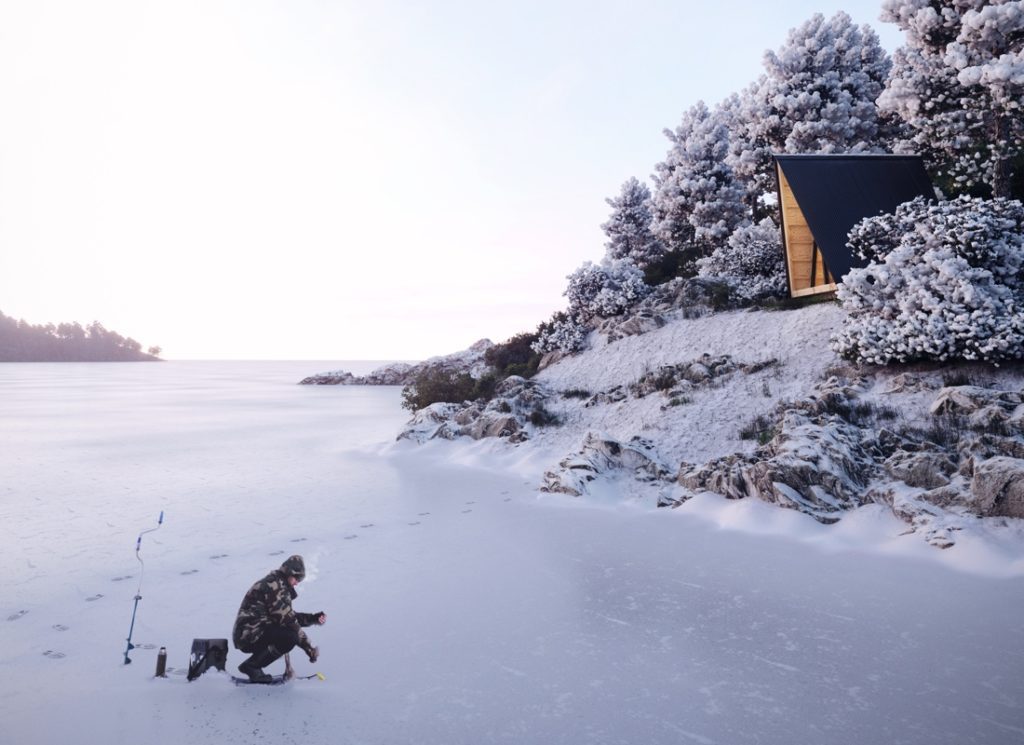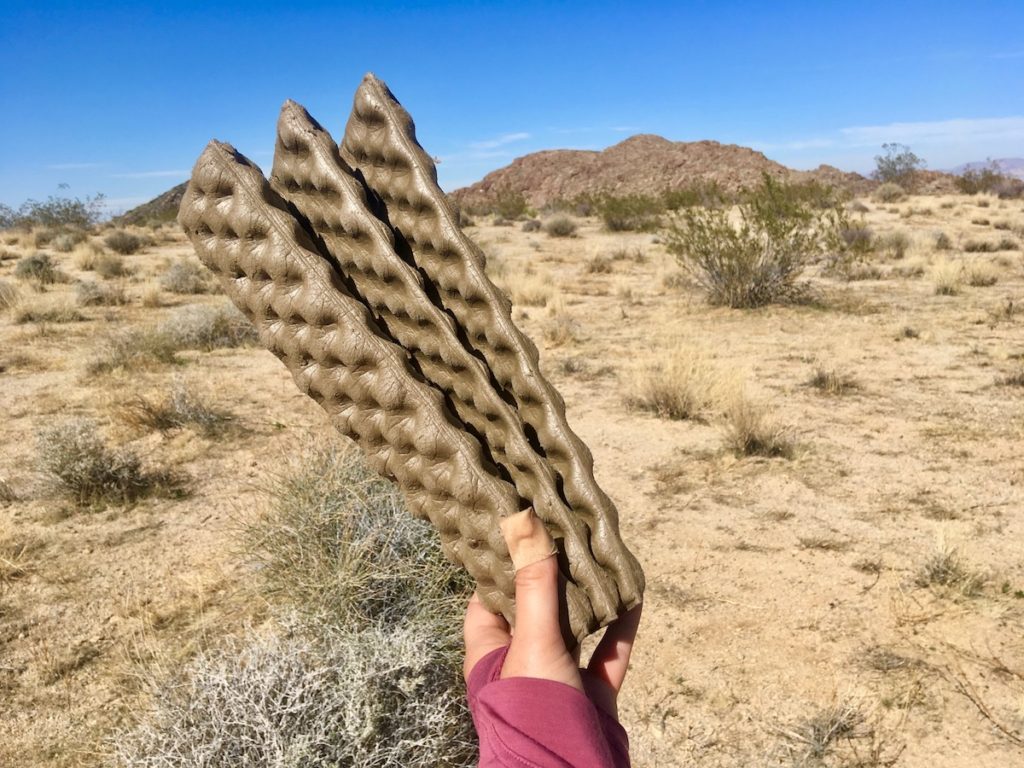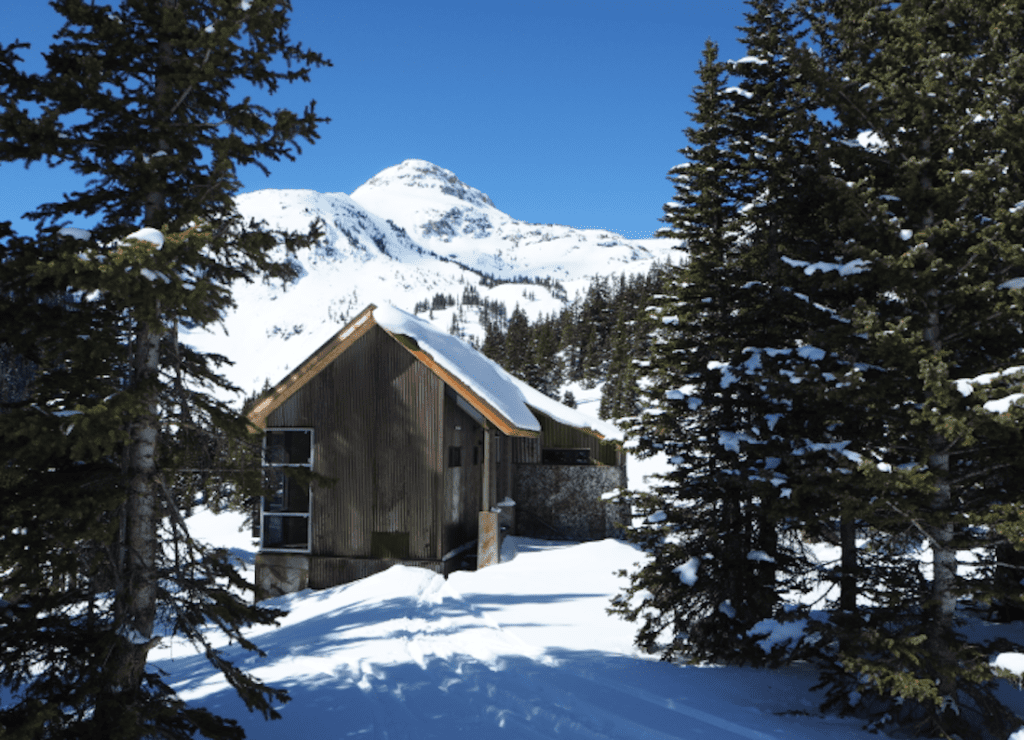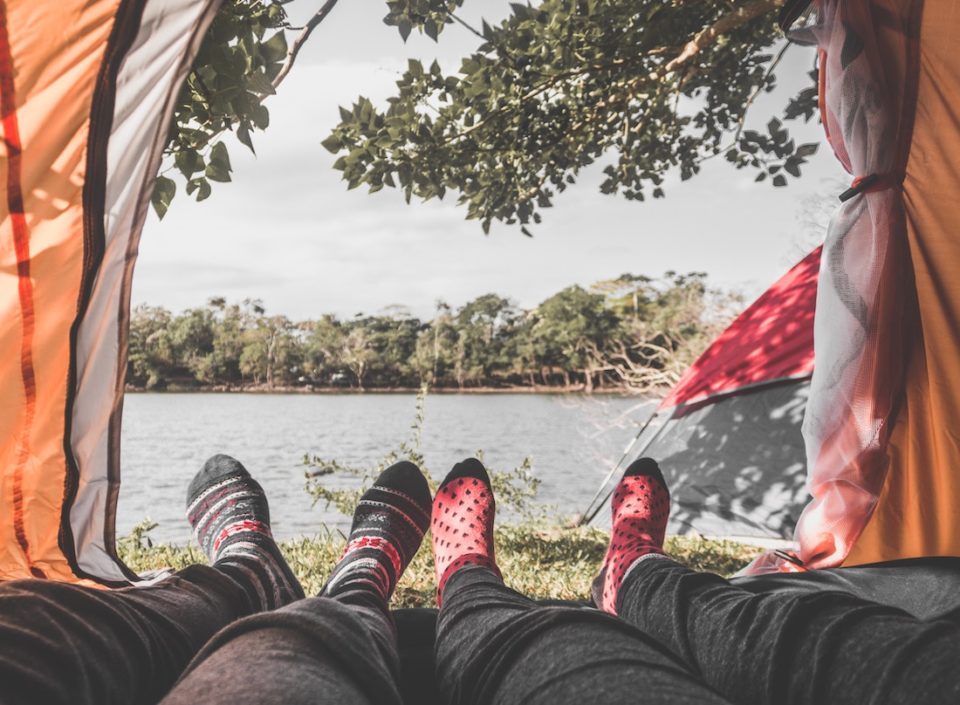False spring, first spring, spring of deception—whatever you want to call it, in parts of the country, it feels like we’re only weeks away from early season camping and backpacking missions. In that vein, we’re looking at publishing more stories that help you, the reader, well, camp better. This is one of our fave looks at the deeply subjective matter of hygiene when you’re sleeping on the dirt, way out in the boonies. -Ed.
I went on a NOLS mountaineering course in the Wind River Range when I was a teenager, the kind of month-long trip where you spend the majority of your time around 11,000 feet, far from swimmable lakes and streams. At my instructor’s behest, I traveled without deodorant, razor, or face lotion—little things I had previously considered necessities. It was good advice, of course. After a week without a proper shower, deodorant and razors can’t do much. Things were going to get real smelly, and it was probably best to just let it go for the duration of the trip.
Then maybe three and a half weeks in, after just a few cold dips in alpine tarns, carefully rationed baby wipes, and plenty of funk, one of our instructors (a good looking 21-year-old climber at that) teased our group about how gross we’d become. He washed his face every night! Flossed diligently! Had taken weekly showers underneath jerry-rigged water bags! Washed his hands before he went to bed every night! Suddenly our filth—which we’d grown to take a certain pride in—was totally embarrassing. Why hadn’t I thought to regularly wash my face, something I do in the front-country? It wasn’t all that hard to do with a bandana and a Nalgene. I was gross.

I still don’t carry deodorant on my backpacking trips, but I’ve learned since that teenage moment of reckoning how far a little backcountry hygiene can go. There’s something a little glorious about being dusty, dirty, sweaty, scratched up, and fully unconcerned with your appearance. But there’s also no better feeling than rolling into camp and wiping down with a bandana dipped in cold water. Nothing like peeling off your socks and boots and letting your tired feet air out before putting on a dry pair of socks. And definitely nothing better than washing your weather-beaten face with soap and swapping out your sweaty ball cap for a cozy wool hat. Maybe I’m soft, but good camp hygiene makes crawling into my sleeping bag at night way more pleasant for me and my tentmates.
Dr. Bronners, toothpaste and floss, and a bandana or lightweight camp towel are all you really need, though I try and bring baby wipes and toilet paper when I can. My most sacred rituals—the daily face wash, airing out my feet, wiping down with bandanas or baby wipes—won’t keep me from stinking, of course. After days on end sweating up and down mountains in the same darn clothes, nothing will. But there are some risks to poor backcountry hygiene beyond offensive smells.
This should go without saying, but perhaps most important is diligently washing your hands with soap and water after doing your business. Just because you’re deep in the wilderness doesn’t mean harmful bacteria stayed back at the gas station bathroom. You can get really sick—or worse, make your buddies sick—if you aren’t careful. Purell is no replacement for soap and water, so don’t get lazy, and don’t wash off harmful germs into any water sources. Have your buddy pour water into your hands from a water bottle, lather up with your biodegradable soap, and rinse ’em clean.
Though you’re unlikely to get trench foot unless you’re deep into a high-alpine sufferfest, airing out your feet and rotating socks so you’re not permanently in soggy wool is key to maintaining comfort and protecting your skin. Too much rubbing and salty sweat can lead to an itchy rash (anywhere on your body, though our feet are particularly prone). So after a few days of wear, I rinse my socks out with clean water and let them dry. If I don’t have much downtime in camp, I’ll strap them to my pack as I walk or tuck them beneath my sleeping pad as I rest.

For the ladies, I can’t recommend a DivaCup enough. Streamlining your necessary sanitary products minimizes the impact of menstruation on the environment, the weight of your pack, and your ability to have a good time. Some women even opt for period-minimizing birth control methods as a way to make their backcountry-heavy lives easier—a friend of mine recently wrote a great essay breaking down the benefits. Beyond that, baby wipes are game-changers, as is tying a bandana to your pack to help clean up after quick (#1-related) bathroom breaks. The sun helps kill any germs.
Of course, the well-being of the land you’re exploring is more important than your dignity (or your tent-mate’s happiness). In the past few years, I’ve seen more toilet paper strewn about backcountry campsites, more baby wipes tucked under rocks, and more (god help me) piles of un-buried human shit than I’ve ever seen before. Maintaining personal hygiene in the backcountry can leave a huge impact behind if done without care for proper LNT. So, let’s say it together: Pack out your toilet paper, your baby wipes, your sanitary napkins. There is no soap on the market that you can safely introduce to a body of water, so never rinse off—your hands, dishes, or body—in a water source. Do so well away from water. LNT advocates against the broadcast method (spreading grey water far and wide in an effort to minimized the impact on one specific spot), and suggests, when possible, pouring used soapy water (particularly from washing dishes) into a cathole.

Just like in the real world—where I’m figuring out that washing my sheets weekly and taking out the trash on time are key to a healthy, happy adulthood—I’m still learning. On a recent short overnight with friends, I found that carrying deodorant can be kind of nice on short trips when you still have a shot at managing smell. I learned that keeping my hair in two braids, under a hat, undisturbed, is the best way to keep it clean, out of the way, and inoffensive to my backcountry buddies, no brush or shampoo necessary. I learned that plenty of people believe burying or burning toilet paper is acceptable practice (which horrified me, to be clear). I started wiping greasy sunscreen off my arms and legs before bed in an effort to keep my sleeping bag clean and ended up sleeping more comfortably, to boot. So I’m curious: how do you stay clean in the backcountry? What’s necessary, and what could you happily forget about until you return to the developed world?

